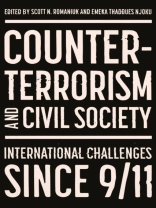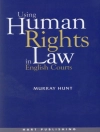This book examines the intersection between national and international counter-terrorism policies and civil society in numerous national and regional contexts. The 9/11 terrorist attacks against the United States in 2001 led to new waves of scholarship on the proliferation of terrorism and efforts to combat international terrorist groups, organizations, and networks. Civil society organisations have been accused of serving as ideological grounds for the recruitment of potential terrorists and a channel for terrorist financing. Consequently, states around the world have established new ranges of counter-terrorism measures that target the operations of civil society organisations exclusively.Security practices by states have become a common trend and have assisted in the establishment of ‚best practices‘ among non-liberal democratic or authoritarian states, and are deeply entrenched in their security infrastructures. In developing or newly democratized states – those deemed democratically weak or fragile – these exceptional securities measures are used as a cover for repressing opposition groups, considered by these states as threats to their national security and political power apparatuses.This timely volume provides a detailed examination of the interplay of counter-terrorism and civil society, offering a critical discussion of the enforcement of global security measures by governments around the world.
Emeka Thaddues Njoku & Scott N. Romaniuk
Counter-terrorism and civil society [PDF ebook]
Post-9/11 progress and challenges
Counter-terrorism and civil society [PDF ebook]
Post-9/11 progress and challenges
Dieses Ebook kaufen – und ein weitere GRATIS erhalten!
Sprache Englisch ● Format PDF ● Seiten 344 ● ISBN 9781526157935 ● Herausgeber Emeka Thaddues Njoku & Scott N. Romaniuk ● Verlag Manchester University Press ● Erscheinungsjahr 2021 ● herunterladbar 3 mal ● Währung EUR ● ID 10026665 ● Kopierschutz Adobe DRM
erfordert DRM-fähige Lesetechnologie












